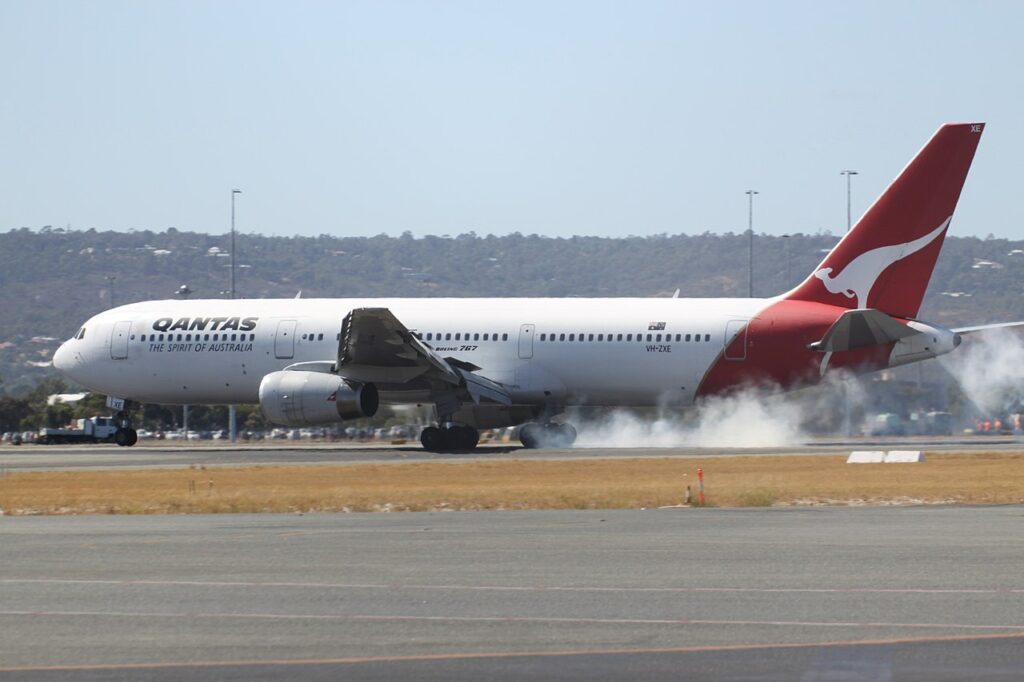The Australian national flag carrier Qantas has found itself at the centre of a class action lawsuit concerning its refund policy for flights cancelled in the wake of the pandemic.
The legal action, filed by law firm Echo Law in the Federal Court, has raised pertinent questions about the fairness and transparency of Qantas’ refund policy, invoking discussions about customer rights, financial implications, and potential industry-wide ramifications.
The Allegations and Implications
At the heart of the lawsuit are allegations that Qantas’ decision to offer travel credits instead of cash refunds resulted in treating customers’ funds as interest-free loans, amassing to over $1 billion.
Echo Law contends that this approach violates Qantas’ contractual obligations and constitutes an unfair and misleading practice. The lawsuit focuses on three key aspects:
Timely Refund Obligations: The lawsuit alleges that Qantas breached its own contractual commitments by failing to provide refunds to customers within a reasonable timeframe. This delay, the plaintiffs argue, caused undue financial distress to affected travelers.
Restrictive Travel Credit Conditions: Qantas’ issuance of travel credits with stringent terms and conditions is another aspect brought under scrutiny. The lawsuit asserts that these conditions hindered customers from utilizing their credits effectively, thereby depriving them of their rightful compensation.
Cash Refund Alternatives: Echo Law contends that Qantas’ refusal to offer cash refunds, despite customers’ inability to utilize travel credits, essentially compelled customers to accept interest-free loans rather than receiving their due monetary compensation.
[monsterinsights_popular_posts_inline]
Qantas’ Defence and Industry Impact
In response to the lawsuit, Qantas has maintained that its refund policy was equitable, emphasizing the flexibility and options it provided to customers amid the pandemic’s uncertainty.
The airline asserts that its intent was to accommodate travellers in challenging times, rather than exploit their predicament. Nevertheless, the class action lawsuit has underscored the tensions between customer expectations and airline practices during times of crisis.
As the lawsuit proceeds through its initial stages, its outcome holds significant implications for both Qantas and the broader aviation industry.

If the court rules in favour of the plaintiffs, it could set a precedent for future class action lawsuits against airlines with similar refund policies.
Airlines worldwide, which have grappled with the dual challenges of financial instability and customer dissatisfaction, may be prompted to reassess their refund practices and prioritize transparency and fairness.
The Broader Situation
The aviation industry has experienced turbulent times due to the unprecedented challenges posed by the COVID-19 pandemic.
The Qantas class action lawsuit is not an isolated incident; it is part of a larger trend of legal challenges confronting airlines over their handling of refunds during the pandemic.
Numerous other airlines face similar class action lawsuits, each raising important questions about customer rights, contractual obligations, and industry practices.
The legal outcomes of these cases have the potential to reshape how airlines approach refunds in the future.
News of the impending class action lawsuit against Qantas comes at the same time that the national carrier has announced a mass expansion of its international route services, as more aircraft return to operational service.

Click the banner to subscribe to our weekly newsleter.









